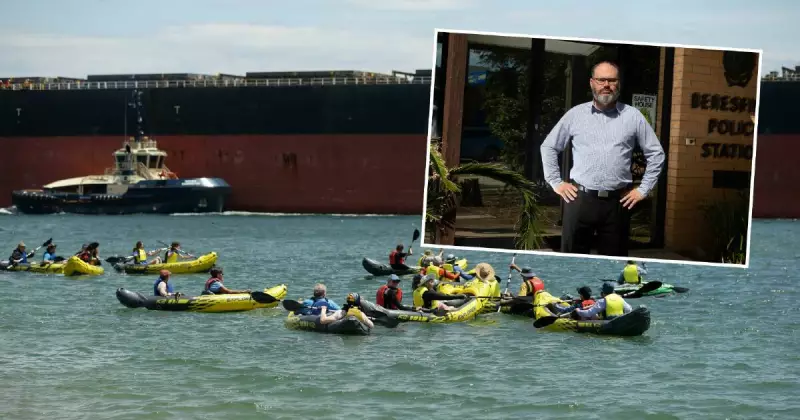
Maitland City Council has launched a stinging criticism of Newcastle's decision to grant climate activist group Rising Tide permission to use council land for their upcoming protest, a move that has already led to significant economic fallout for the region.
Cruise Ship Cancellations Hit Local Businesses
The controversy erupted after cruise operator Viking cancelled scheduled visits from its ships Venus and Orion to Newcastle in response to the planned November protest. The cancellation has dealt a severe blow to Morpeth businesses, who were expecting hundreds of passengers to visit the historic town as part of their itinerary.
Ward 2 councillor Mitchell Griffin revealed the cancellations represent millions of dollars in lost income for the wider Hunter region. "Businesses in Morpeth have struggled to get back on the cruise ship itinerary ever since the COVID-19 outbreak," Cr Griffin said during Tuesday's council meeting.
Council Divided Over Protest Response
The majority of Maitland councillors supported sending a formal letter to Newcastle Greens deputy lord mayor Charlotte McCabe expressing their disappointment in the council's decision. However, the motion revealed deep divisions within the council chambers.
Cr Griffin was particularly critical, pointing to Rising Tide's previous activities. "Here we have an LGA who gave very specific instructions last year to this group that if you muck up, you won't be back," he said. "They mucked up, they've damaged council property, that's been reported to Newcastle council, they've had multiple arrests, and yet the red carpet was rolled out for them."
Ward 3 councillor Bill Hackney expressed concern that the cruise ships, having been "bitten twice," would not return to the region. "If they want to sit there and paddle board amongst the bull sharks, that's their problem, but they're now affecting the economy of what the Hunter Valley is built off the back of," he said.
Opposition Voices Defend Right to Protest
Not all councillors supported the motion, with Ward 3 councillor Ben Whiting describing it as "virtue signalling" and "culture warring." He predicted Newcastle's deputy mayor would "file this one straight in the circular file."
Ward 1 councillor Amelia Atkinson argued that City of Newcastle had followed a "rigorous process" in its determination and that writing to the council represented an "overstep."
Ward 4 councillor Don Ferris defended the right to protest as "fundamental" to Australia's democracy. "Us writing to Newcastle and telling them that they've done the wrong thing for allowing a community group to protest is ridiculous," he stated.
Approval Process and Community Response
The decision to approve Rising Tide's controversial application to use Foreshore Park as a campsite ultimately rested with City of Newcastle chief executive Jeremy Bath, after the elected council gave its in-principle support in August.
At the same meeting, the elected council approved Rising Tide's application to use Camp Shortland from November 28 to December 1 for a climate concert. It's important to note that City of Newcastle's event licence approval does not endorse the protest itself, but merely permits Rising Tide to use council-owned land.
The Port of Newcastle has rejected claims it was involved in the decision to cancel the cruise ships' visits. Meanwhile, the climate activism group has previously stated it does not plan to block non-coal shipping.
Newcastle council received 1500 submissions during the public exhibition period about the use of Foreshore Park, with 76.6 percent expressing support for the application.
The situation highlights the ongoing tension between environmental activism and economic interests in the Hunter Valley region, with local businesses caught in the middle of the dispute between neighbouring councils.





